Energy Lab Products
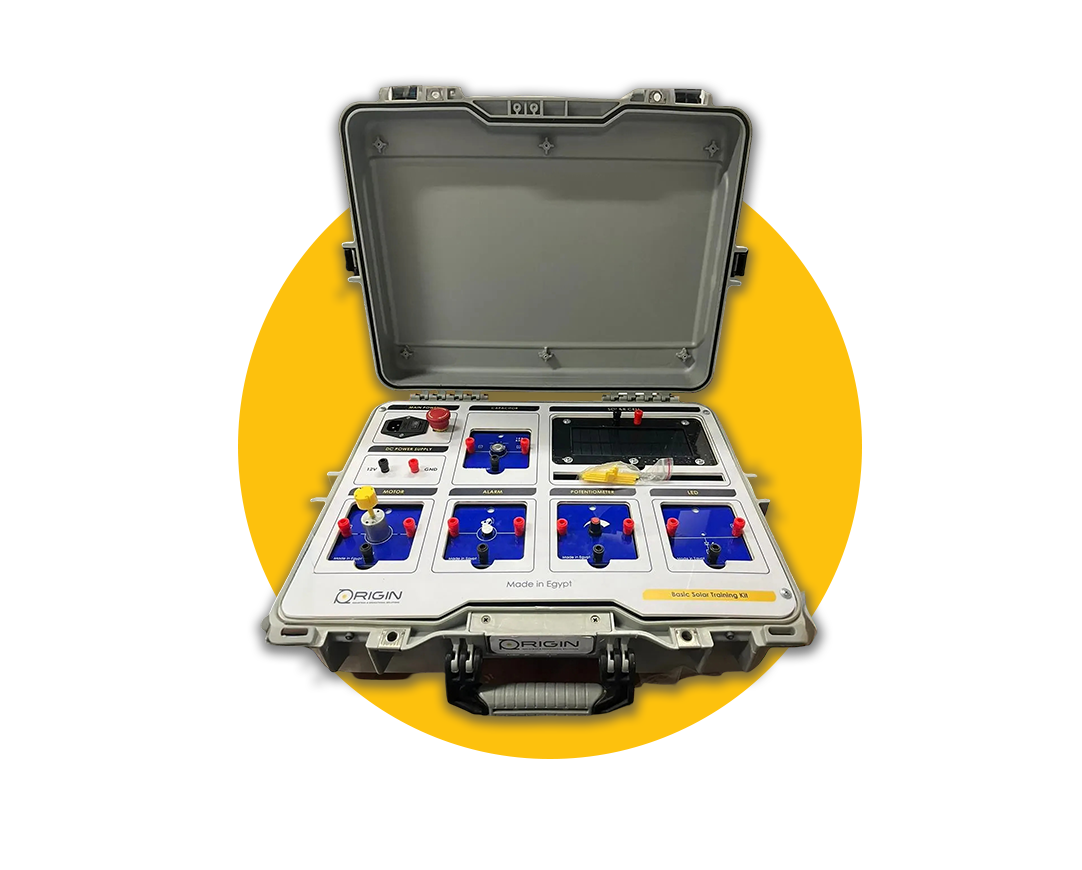
Portable PV
Code : (EEGY-41)
The Solar PV Fundamental Training Kit includes a wide range of experiments covering the basic principles of photovoltaics, the analysis of PV system elements, and the creation of sophisticated PV systems on a small scale in a laboratory setting.
The Training Kit offers experiments related to both electrical engineering and photovoltaics.
The inverter demonstrates the conversion of solar panel current into alternating current.
Additionally, the kit contains various electrical consumers, such as a super bright LED or a light bulb, enabling performance comparisons.
• Voltage current and power measurements in accordance with Ohm’s law
• Resistors connected in series and parallel
• How the I-V characteristics of solar cells change with varying levels of illumination
• The impact of shading on solar cells
• How power changes with different angles of incidence
• The effect of level of illumination on power
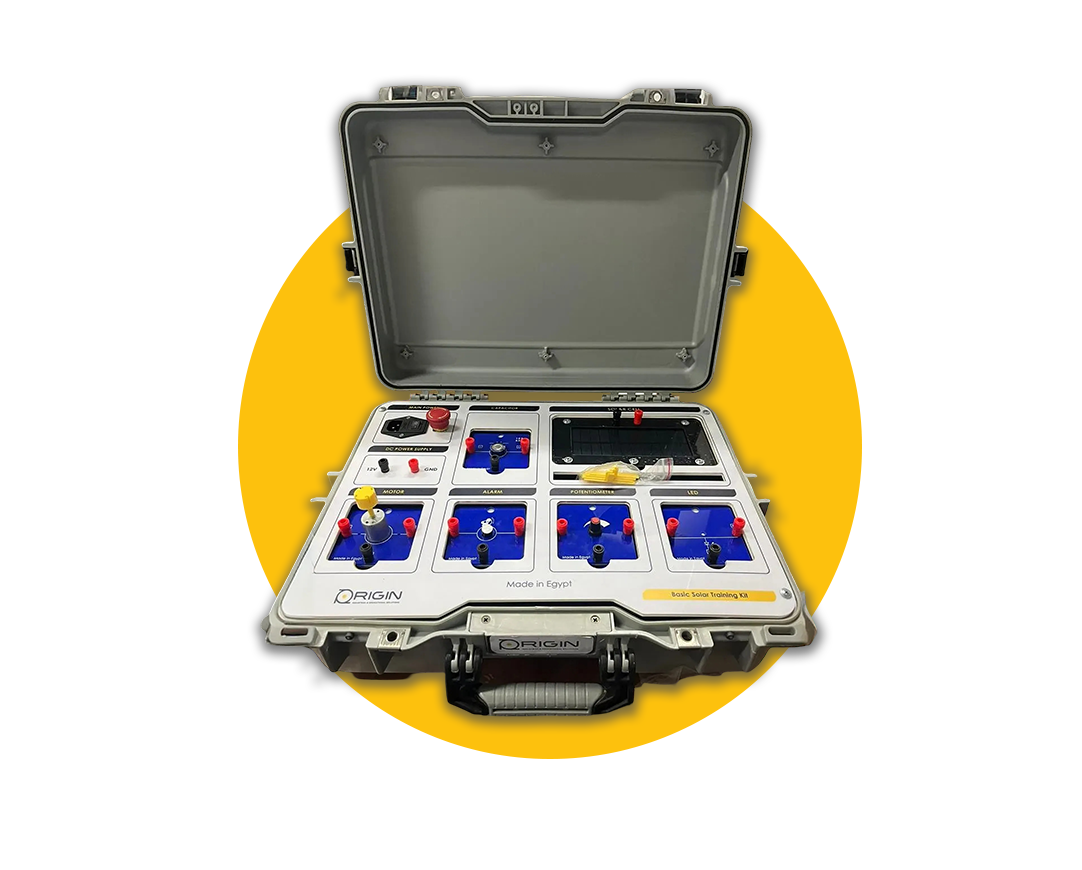
Portable thermal energy
Code : (EEGY-42)
The Solar Thermal Fundamental Training Kit is designed to help with the implementation of different technologies for converting solar thermal energy in technical education.
Inside the Training kit are several solar collector systems that can be used with or without pumps, as well as CSP (Concentrated Solar Power) technology and a Peltier component for direct conversion into electricity.
Another important aspect of the kit is its ability to conduct experiments on the basics of thermodynamics, such as heat radiation absorption and convective heat flow, which offer a comprehensive understanding of the practical applications of physical effects.
• Absorption and reflection properties of various materials
• Concentration of light using a Fresnel lens
• Solar thermal collector utilizing pump circulation
• Collector system incorporating heat exchange
• Use of pump cycle in a parabolic trough collector
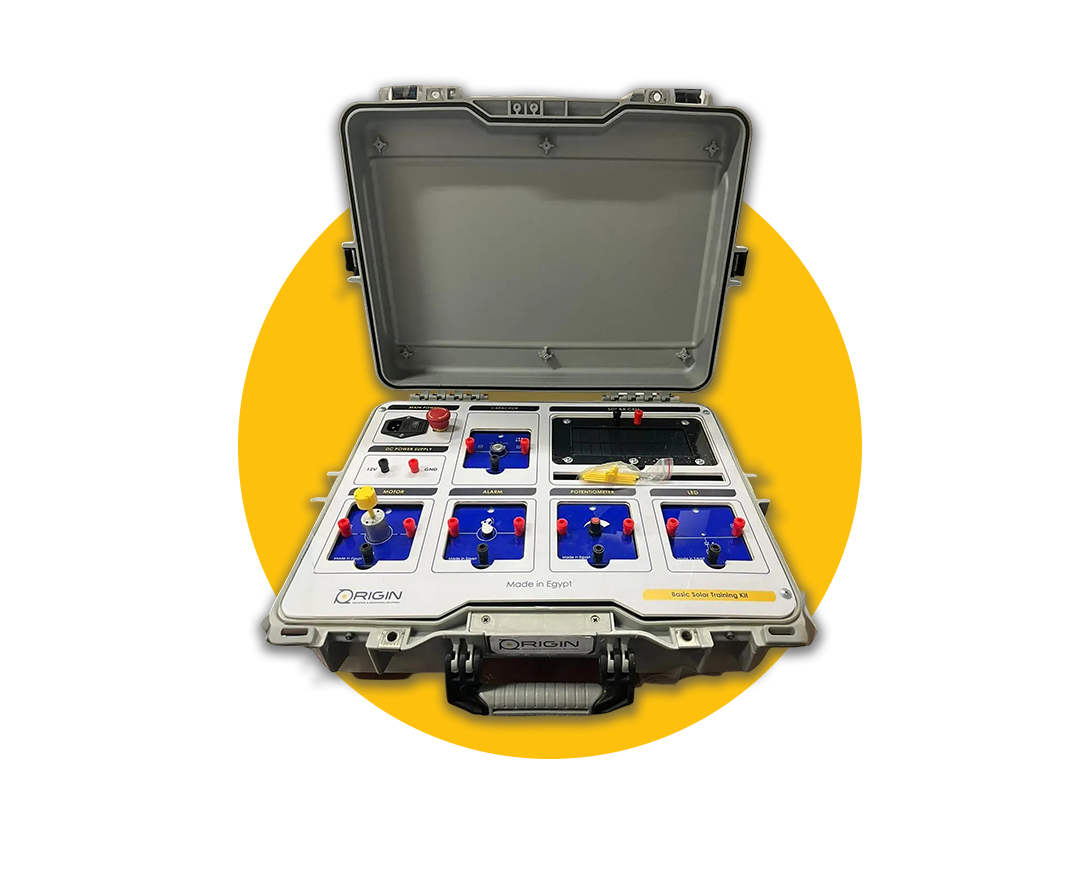
Portable wind energy
Code : (EEGY-43)
The Wind Energy Training Kit provides practical, targeted experiments for technical training, along with engaging basic experiments.
Wind energy presently makes up the majority of clean electricity production and due to the rapid expansion of modern wind farms, there is a high demand for highly skilled workers.
• Investigating fundamental wind experiments
• Analysis of the airflow velocity behind the rotor
• Impact of the distance on wind speed
• Effect of the wind speed
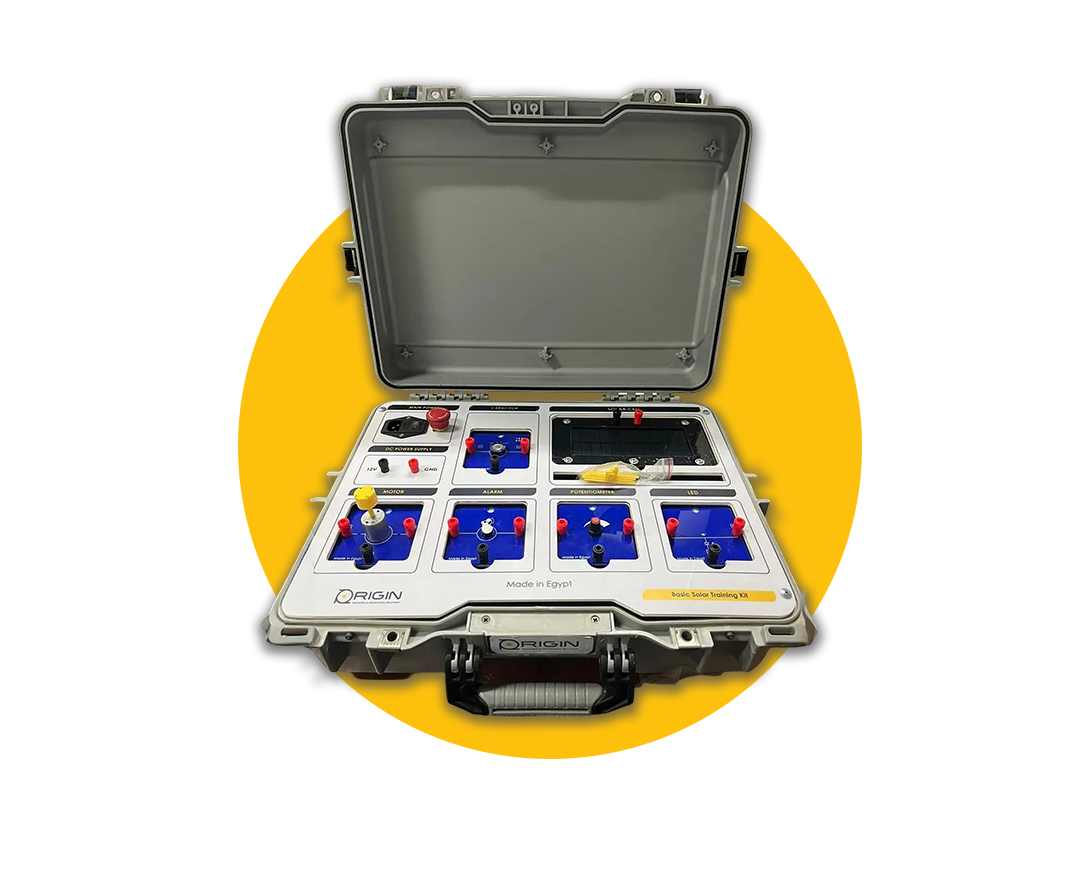
Portable hydropower
Code : (EEGY-44)
The Hydropower Training Kit offers fundamental theoretical learning about the dynamics of water turbines, as well as qualitative exploration of the use of hydropower.
It includes a variety of turbines, ranging from a simple water wheel to a modern, high-capacity Pelton turbine.
• The relationship between the height of fall and volume flow, flow velocity, and power
• The relationship between the pipe cross-section and volume flow, flow velocity, and power
• Evaluating the effectiveness of Pelton turbine, crossflow turbine, and waterwheel
• Assessing the efficiency of the Pelton turbine, crossflow turbine, and waterwheel based on volume flow and pressure.
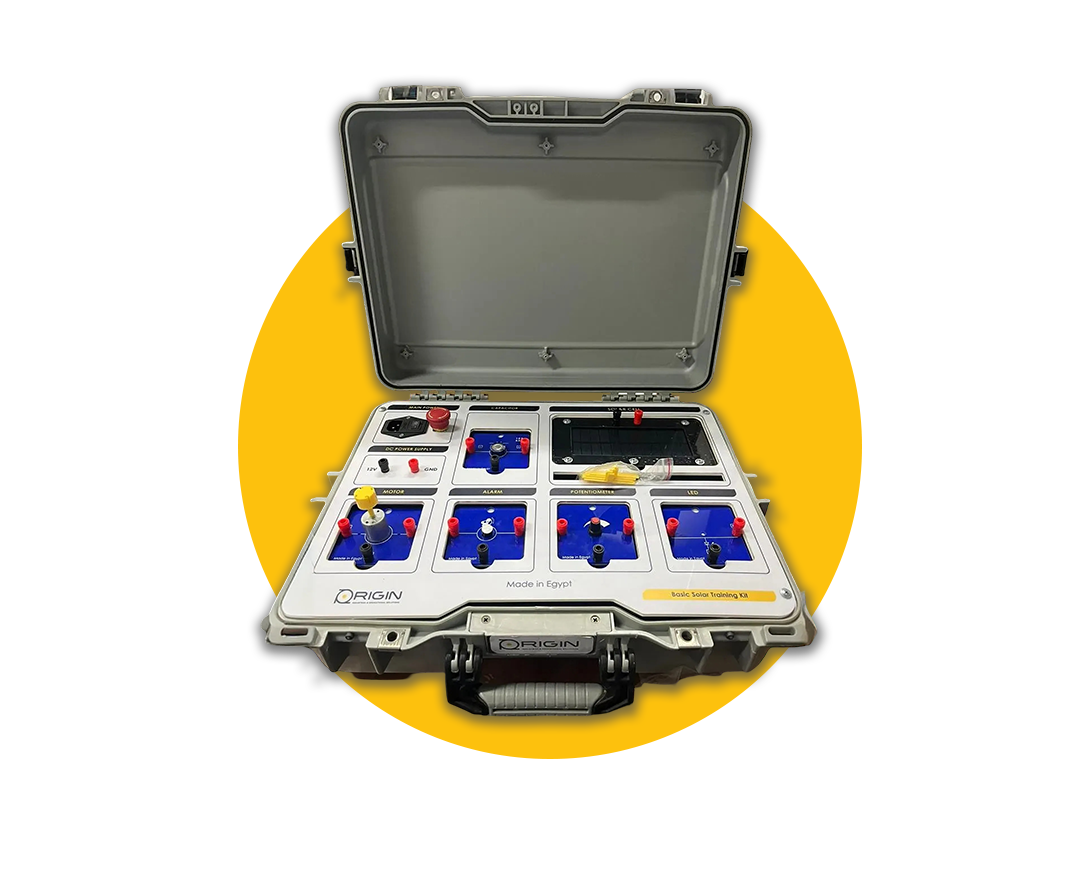
Portable e-mobility
Code : (EEGY-45)
The Emobility Training Kit provides students with insight into the physical and technological fundamentals and applications of different battery technologies.
Electric mobility, a highly relevant topic, is explored using an autonomous concept vehicle.
The sizing and use of various battery types pose challenges, including longevity and charging approaches.
Qualitative and quantitative experiments are used to investigate the characteristics of different battery types.
The kit can be expanded with modules for lithium-polymer and lead batteries.
• The battery module's capacitance
• How a capacitor is charged
• How a capacitor is discharged
• I-V behavior of the hydrogen fuel cell
• Production of hydrogen in the reversible hydrogen fuel cell
• Hydrogen in the reversible hydrogen fuel cell Efficiency of the hydrogen fuel cell
